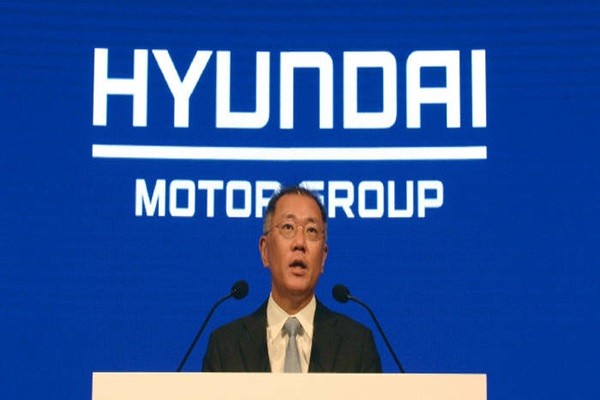It is expected that Hyundai Motor Group’s focus for next year’s management will be open innovation to respond to future mobility generation proactively and market expansion to diversify profitability.
Pioneering emerging markets such as South-East Asia and recovering its business in the Chinese market are also important issues as it focuses on future mobility technology regarding eco-friendly future vehicle, autonomous vehicle, and aircraft. Continuous opposition between labor and management and reformation of governance structure are also seen as key issues for Hyundai Motor Group.
It has been 13 months since Executive Vice-Chairman Chung Eui-sun of Hyundai Motor Company has overseen the management. Industries praise him for inducing positive changes through ‘open innovation’, culture centered on flexibility and communication, and hiring of talented individuals. Starting with a shift in generations, he has quickly innovated the culture within the group.
Followed by an Indian transportation network company called Ola ($280 million (330 billion KRW)) in March, Hyundai Motor Group also invested into a South Korean startup ‘CODE42’ and a Croatian car manufacturer called Rimac ($84.8 million (100 billion KRW)) in April and May respectively. With a goal of test-operating eco-friendly self-driving robo-taxi in 2021, Hyundai Motor Group also invested into an American self-driving startup Aurora Innovation. It also acquired 20% of IONITY’s shares and is accelerating the process of establishing an ultrafast charging infrastructure within Europe. It has recently decided to set up a joint corporation with APTIV as part of its aggressive moves to develop autonomous vehicles. It is also working on the development of ‘small personal aircraft’ that can perform VTOL (Vertical Takeoff and Landing) and autonomous flying. On the 30th of last month, it established ‘UAM (Urban Air Mobility) Business Department’ that is in charge of the development of key airplane mobility technologies for urban use.
However, there are still many internal tasks that Hyundai Motor Group needs to take care of. Although it put out a proposal to reform its governance structure that is centered on a spinoff merger plan for Hyundai Mobis and Hyundai Glovis in March of last year, it had to cancel its plan due to oppositions from Elliott Management and consulting companies that have voting rights. Although it stated in May of the same year that it would put out a new proposal after gathering opinions, there has yet to be any sign regarding the proposal.
However, it won a complete victory against Elliott Management during a general meeting of shareholders of Hyundai Motor Company and Hyundai Mobis and has prepared a groundwork to push for reformation once again. Inner and outer circles of Hyundai Motor Group believe that there is a high chance that the reformation will be pushed by Hyundai Motor Group on full-scale in 2020 rather than 2019.
“We are currently discussing about reforming our governance structure with a mindset of reexamining everything from the beginning.” said a spokesperson for Hyundai Motor Group at a recent company presentation.

Fact that the speed of improvement of Hyundai Motor Group’s performance has been slow is another important task that it needs to take care of. Its third quarter’s operating profit of $245 million (288.9 billion KRW) in 2018 was shocking and it had amplified a buzz that Hyundai Motor Group was in a critical situation. However, it made $425 million (501.1 billion KRW) and $785 million (924.9 billion KRW) in the fourth quarter of 2018 and the first quarter of 2019 respectively and its operating profit finally surpassed $848 million (1 trillion KRW) for the first time in seven quarters after Hyundai Motor Group made $1.05 billion (1.2377 trillion KRW) in the second quarter. However, it is likely that its operating profit will not surpass $1.05 billion once again for a while after suffering a loss of $763 million (900 billion KRW) due to an issue related to the quality of ‘Theta II engine’.
Hyundai Motor Group also needs to improve its performance within the Chinese market. According to Hyundai Motor Company and Kia Motors, their market shares increased from 9.8% in 2009 to 10.4% in 2014. However, their market shares were halved to 5.3% in 2018 and even dropped to 4.4% in June of this year. It is expected that Hyundai Motor Group will try to minimize risks within the Chinese market and target new markets and rising markets such as South-East Asia by breaking up its investments
Staff Reporter Park, Taejoon | gaius@etnews.com